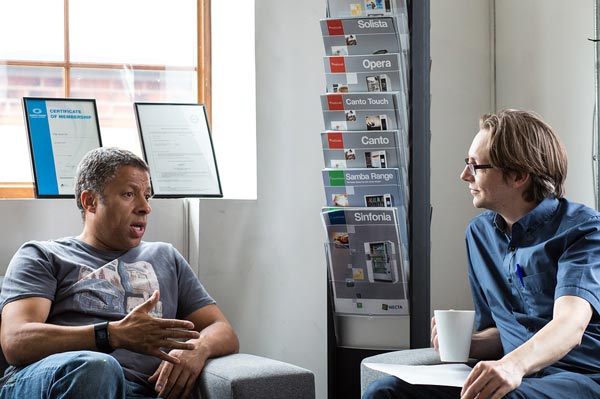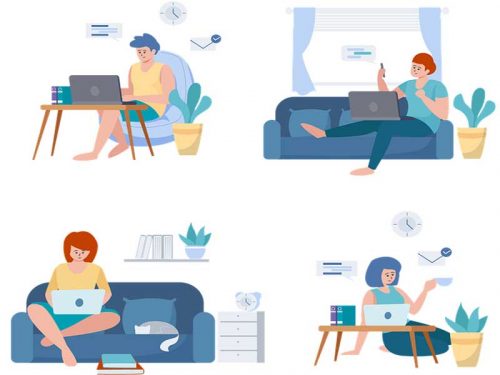4 Reasons Why You Should Stop Being Sorry All the Time: Accepting your mistakes is not easy. But there are some people, who over-apologize, without a good reason. They need to stop being sorry all the time.
You are considered a weak person if you are manipulated into apologizing for something that you never did in the first place.

Inspiring your journey, one story at a time. #LifeFalcon.
Saying sorry is not a bad thing at all. But doing it all the time is not healthy for your mental wellbeing.
Apologies hold immense significance if used at the right place and the right time.
Being apologetic all the time is similar to abusing the importance of this term and it gets pretty annoying too. If you are struggling with the habit of being over apologetic all the time, then we are here to help you.
Breaking through this habit takes conscious effort. I mean, I understand where you are coming from. For instance, you are entering a train and your hand accidentally brushes against someone else’s and you automatically say, “Oh I’m so sorry.”
You want your sister to do something for you and you go:
Hey Emilia, I am sorry to bother you but…
You unconsciously say sorry at least 10 times a day, whether it is your mistake or not. We all do it or have done it, at a certain phase in our lives.
It is not even an apology anymore; the value of “sorry” has gone down the aisle that we don’t even feel sorry while saying it out loud to someone.
To all those people who over apologize on stupid things, and on mistakes they didn’t make or for things they didn’t say; why do you do it?
Let’s just admit the fact that we usually apologize because we want to put an end to a lot of arguments. And what else can be better than simply shoving an apology in someone’s face and letting the topic go?
For a lot of people, this trick does work amazingly. But the reality is, that it stays in the back of your mind, prying you slowly as how you didn’t do anything wrong. The apology didn’t come from the core of your heart because it wasn’t your mistake in the first place.
Thus, apologizing to putting an end to a fight is not a healthy approach. If you don’t feel like apologizing, simply don’t.
Stop being apologetic and take hold of the situation.
Turn your words around and say what you actually feel.
In this piece of article, I will be helping you identify why you are being over-apologetic and how you can stop doing this and why you must take a step to eradicate this habit from your life.
Table of Content
The psychology behind over-apologizing:

There can be various reasons to be sorry.
It can be due to traumas from the past that an individual develops an over-apologetic personality.
According to different studies, it has been proven that there is always a deeply rooted cause behind a person who is leading the “sorry life”.
In the light of research done in Harvard Business School, a lot of people say sorry, to build and maintain trust too. Surprisingly, it has been proven that people tend to trust those who apologize unnecessarily.
If we seek for reasons to be sorry, within ourselves, we can accept the fact that we apologize all the time to people we love, because we don’t want to lose them.
We feel the need to claim our mistake so the other person is not offended. We feel guilty by our actions and we believe that it caused hurt to the other person and by apologizing, you admit that it’s your fault because this act is sometimes bigger than the relationship you are in.
In other words, apologizing clarifies that the so-called incident wasn’t meant to happen and it happened because of the given circumstances.
But have you ever tried putting your feelings on their plate and discussing the entire situation?
If you feel the need to apologize all the time, then you are misusing this gesture.
Sometimes, sitting down with your friend or partner can help resolve an issue without being over-apologetic. Everyone has different reasons to be sorry but leading the sorry life will eventually make you lose confidence.
You will lose the real essence of this gesture and abuse this term, to get out of things you don’t want to express your feelings about. In the end, you will develop a personality that is not attractive in any way.
How to stop being Sorry for Everything?
Apologizing is a strong gesture and if used at the right time and situation, it can be extremely helpful in building trust and social cohesion too.
However, everything that exceeds a certain limit is unhealthy.
Over-apologizing is certainly not recommended as it destroys your personality and portrays you as a feeble induvial.
So how to stop being apologetic all the time? Here is how you can try to do this.
Remember, it requires conscious efforts.
Turn your words around:

You can start low, by turning your statements around.
For example, instead of telling your friend that you are sorry for being late, you can say thanks for being patient and waiting for me.
You showcase your expressions in a different manner, without having to say sorry all the time.
Studies show that people who apologize a lot, give a negative impact, especially in workplaces.
Your personality is devalued.
Thus, replacing sorry with appropriate words is going to help you portray yourself as a confident personality.
Likewise, instead of saying:
Sorry to disturb you
You can just say
I would be grateful if you could just pass me that pen.
It is a conscious effort but replacing the word “sorry” in situations where there isn’t any need of it, is a great way to stop being sorry all the time.
It gives an extremely natural pivot to the discussion, without awkward explanations, that follow right after an apology.
Get a Solution:

We all make mistakes; it is human nature. We tend to screw things up a bit. But why don’t we try to find a solution for it, instead of being apologetic each time? This is one of the smartest ways for how to stop being sorry all the time. The best thing that you can do after messing up, is to provide a solution for it.
Your sorry is certainly not going to solve the problem, right?
So why not try evaluating the problem that you have caused and come up with a solution for it.
For example, you are unable to meet a deadline.
The first thing you say is:
I am sorry.
To keep your personality intact, it is best if some kind of explanation follows your apology. You can say:
The information provided to me lacks some data which will reach to me by Monday, so it is impossible for me to come up with the presentation on Tuesday, so I would appreciate an extra day for the compiling that data.
Try thinking rationally and smartly instead of being over apologetic and losing your personality’s charisma.
Try staying Quiet:

Mostly, the problem with saying “sorry” all the time is that we aren’t even sorry in the first place. This usually happens when it isn’t our mistake and we tend to apologize aimlessly.
What if, instead of being apologetic, you try staying quiet?
Pause.
Stay silent for some time and listen to the argument ahead. Do not start your conversation with “sorry” and just back off a bit.
Silence might seem a bit awkward and uncomfortable too but this is an extremely powerful tool to utilize if you are not the one to be blamed.
Giving a slight pause gives an extremely strong impression of you and on the other hand, you can come up with a good statement that doesn’t involve the word “sorry.”
Know what Triggers you to Apologize:

This might sound stupid to some people but write down at least 10 things that trigger you to apologies.
If you feel that you have more triggers; go ahead and make a list.
Now, think of all the situations and try to think of a statement, different than apologizing.
Now another example, if you have to ask someone to do you a favor, what can you say?
Instead of saying:
I am sorry to disturb you but can you fetch me a glass of water?
You can simply say:
I would be grateful if you could fetch me a glass of water.
The statement changes positively and you do not have to apologize either. I know what you are thinking “it’s called manners”, yea true. But at the same time, you are teaching your brain that it’s okay to use the word “sorry” all the time.
These are 4 simple yet effective ways on how to stop being sorry all the time. Remember, that you won’t stop being over-apologetic overnight. You need to give it a little time because bad habits, don’t break that easily.
Why you should stop saying sorry?
Owning up to your mistakes is great. It is an act of strength and not everybody is able to do it. However, apologizing all the time, whether you are at mistake or not, is a useless act and is an abuse to such a kind gesture.
Sometimes, pausing and reflecting on why you are saying or whether it needs to be said in the first place or not, holds a lot of importance.
Many times, it will stop you from apologizing all together.
So why should you stop saying sorry? In the beginning, it might help you in getting people to adore you.
But gradually, this becomes a toxic trait and leads you towards an unhealthy life.
It gets compulsive and you start guilt-tripping on minor things, which are absolutely out of your control. Feeling guilty, even when you have not done anything wrong will leave mold your personality in a negative way.
You are not responsible for everything.
A lot of people shoulder everything to the detriment of their lives which harms their mental wellbeing. Thus, this is the major reason why you should stop saying sorry as it is molding your personality into a guilt-driven person.
Many of us get our ways out of an argument by simply apologizing. This is another major reason why you should stop saying sorry all the time. If you wish to step out of an argument, you can opt for silence, to make the other person evaluate their decision. If you are not at mistake, apologizing is not the only way to walk out of an argument.
Step back and let your friend or partner rethink. Don’t let your apology become a pattern of walking out of a problematic situation. Put a halt to it when you are not the one to be blamed.
Conclusion
Shifting your perspective is the key to changing things. Nobody wants to lead the sorry life and be an apologetic person, who has to take the blame, all the time.
Let people shoulder their own mistakes and a love that is lost through it, isn’t pure love anyways.
Saying sorry all the time must never become a pattern of life.
It makes you a feeble induvial and doesn’t let you evolve properly.
Whether it is your personal life or professional; try turning your phrases around and you are definitely going to stop being sorry all the time.
Being careful with what comes out of our mouth can help us build ourselves in the proper way.



















